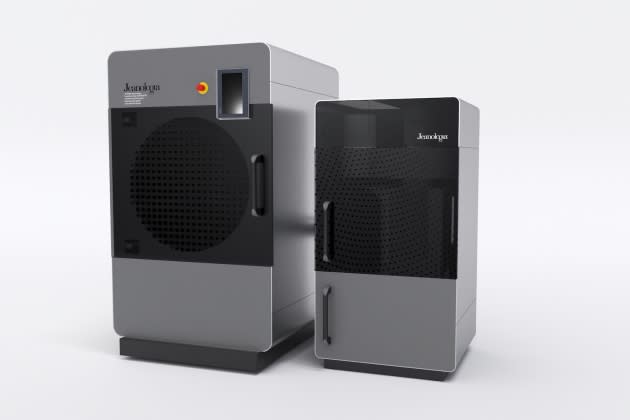Inditex, Jeanologia Develop Industrial Solution for Microfiber Shedding

Two Spanish companies have joined forces to take on one of the apparel industry’s biggest issues: microfiber shedding.
Zara owner Inditex and sustainable technology firm Jeanologia have collaborated on the Air Fiber Washer, an industrial air system designed to extract microfibers during garment fabrication to reduce subsequent shedding when people launder their clothes in washing machines at home. The companies said it is the first industrial air system that uses dynamic airflow in combination with microfiltration to capture microfibers.
More from Sourcing Journal
Under Armour's Microfiber Pollution Solution Earns Industry Recognition
Why France Isn't Investigating Skechers, Inditex, Uniqlo and SMCP Anymore
Presented at the ITMA trade show in Milan this week, the washer reduces the release of microfibers in initial washes by up to 60 percent. This is made possible by an industrial pretreatment that effectively removes these particles through the use of air. The washer’s dynamic air flow extracts the microfibers from the garments, collecting them in a containment bag for potential recycling. Each Air Fiber Washer can collect up to 325 kg (716.5 lbs) each year, depending on the type of fabric as well as machine conditions like loading and movement.
The water- and heat-free process does not compromise fabric quality.
“This initiative is just the first step in the mission we have set for ourselves to minimize the impact of microfiber shedding in textile manufacturing and in the product life cycle,” said Enrique Silla, Jeanologia president.
Jeanologia is an innovator in air-power technology. Its atmospheric washing process called Atmos ages garments without water, chemicals or pumice stones. Through its G2 ozone technology and Indra patented system, Jeanologia makes authentic vintage and stone wash looks possible by replacing traditional water washers with air washers.
Though small—less than 15 millimeters in length—microfiber particles negatively impact the environment. A University of Plymouth study found that up to 700,000 microfibers can be released in a single 13-pound load of at-home laundry. These pollutants enter waterways and are later enter the food chain when they’re ingested by marine life.
Fiber shedding is one of the most significant challenges facing the textile industry due to existing limitations in water treatment capabilities. Fashion Revolution’s 2022 Fashion Transparency Index found that just 24 percent of the 250 largest fashion brands it reviewed disclosed what they are doing to minimize the impact of microfibers and microplastics—despite textiles accounting for more than one-third of microplastics in the world’s waterways, according to the International Union for Conservation of Nature.
Players in the supply chain are taking steps to curb the crisis. Last year, Patagonia and Samsung teamed up on a washing machine with a Less Microfiber Filter that can filter out microplastic waste and keep it from entering the environment without compromising performance. In April, a group of nonprofits urged the European Commission to mandate the installation of filters in new washing machines.
France will require microfiber catchers in all new laundry appliances beginning in 2025.
Silla said working with Inditex is a “great experience and a source of pride,” however the technology is available to the entire industry. He said the goal is to offer “cost-neutral technological solutions to manufacturers, brands and retailers so that they can act immediately.”
Javier Losada, Inditex’s general director of sustainability, shares Silla’s sense of urgency and collaboration.
“We must promote innovative solutions that allow us to respond to the challenges of our industry, such as microfiber shedding,” he said. “This project with Jeanologia is an example of how we can collaborate with other industries to limit our impact on resources such as water right from the manufacturing stage.”
